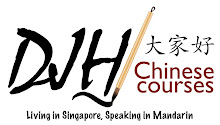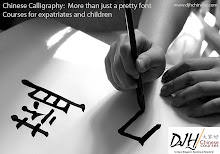Nǐ Hǎo - 你好 - Hello
Audio links are marked with ►
►nǐ hǎo - Saying "Hello" in Mandarin ChineseLearn how to greet people in Mandarin Chinese.
The literal translation of nǐ hǎo - 你好 is "you good".
Nǐ - 你 means "you" and hǎo - 好 means "good".
Nǐ - 你 means "you" and hǎo - 好 means "good".
Nǐ - 你 is the informal form of "you" and is used for
greeting friends and associates. The formal form of "hello"
is ►nín hǎo - 您好. Notice that the formal "you" is
nín - 您.
greeting friends and associates. The formal form of "hello"
is ►nín hǎo - 您好. Notice that the formal "you" is
nín - 您.
Use nín hǎo - 您好 when speaking to:
- Superiors
- People in authority
- Elders
Use nǐ hǎo - 你好 when speaking to:
- Friends
- Colleagues
- Children
China & Taiwan
The use of nín hǎo - 您好 is more common in
Mainland China than in Taiwan. The informal nǐ hǎo -
你好 is the most common greeting in Taiwan, no matter
what the rank of the person you are addressing.
Mainland China than in Taiwan. The informal nǐ hǎo -
你好 is the most common greeting in Taiwan, no matter
what the rank of the person you are addressing.
How Are You?
You can extend nǐ hǎo - 你好 by adding the
question particle ►ma - 嗎/吗. The question particle
ma can be added to the end of sentences and phrases
to change them from statements to questions.
question particle ►ma - 嗎/吗. The question particle
ma can be added to the end of sentences and phrases
to change them from statements to questions.
The literal translation of nǐ hǎo ma? - 你好嗎?/
你好吗? is "you good?" which means "how are you?"
你好吗? is "you good?" which means "how are you?"
Nǐ hǎo ma? - 你好嗎?/你好吗? should only be said
to close friends or family members. It is not a common
greeting for associates or strangers.
to close friends or family members. It is not a common
greeting for associates or strangers.
The answer to nǐ hǎo ma? - 你好嗎?/你好吗?
can be:
can be:
- hěn hǎo - 很好 - very good
- bù hǎo - 不好 - not good
- hái hǎo - 還好/还好 - so so
Two Sets of Chinese Characters
You may be wondering why there are two Chinese
versions of nǐ hǎo ma - 你好嗎/你好吗 and hái hǎo -
還好/还好. The first version is traditional characters
which are used in Taiwan, Hong Kong, Macau, and many
overseas Chinese communities. The second version is
simplified characters, the official writing system in
Mainland China, Singapore, and Malaysia.
versions of nǐ hǎo ma - 你好嗎/你好吗 and hái hǎo -
還好/还好. The first version is traditional characters
which are used in Taiwan, Hong Kong, Macau, and many
overseas Chinese communities. The second version is
simplified characters, the official writing system in
Mainland China, Singapore, and Malaysia.












No comments:
Post a Comment